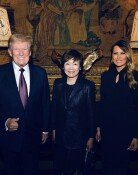Strike-free agreement imminent in auto industry in 12 years
Strike-free agreement imminent in auto industry in 12 years
Posted September. 07, 2022 08:03,
Updated September. 07, 2022 08:03
Expectations run high that collective bargaining between labor and management for Korea's finished carmakers may be concluded without a strike in 2022. Hyundai Motor Company, the industry's leader, concluded their collective bargaining as early as August 19. The deal was completed without a strike for four consecutive years, a record for strike-free contract signing since the establishment of its labor union in 1987.
Renault Korea's management and labor also agreed on a provisional deal at the end of August. Kia Motors is expected to close the deal without a strike after having agreed on the wage negotiations and currently working on the collective bargaining. SsangYong Motor does not hold collective bargaining this year. That means all of the domestic finished carmakers in Korea will be concluding the collective bargaining without a strike in 12 years if GM Korea's labor approves its tentative collective agreement proposal.
Strike-free agreements in the auto industry whose labor unions are known for their belligerence were reportedly possible because the labor and the management were in unison to overcome the ‘triple-risk’ of FX rate, inflation and interest rate. The domestic auto industry is allegedly under pressure to produce more than their competitors overseas amid hardships such as the COVID-19 pandemic and a new cold war between the U.S. and China, which drove up steel prices as well as disruptions in supplies including semiconductors.
The domestic auto industry generally suffers most severe production disruptions in the third quarter due to the infamous ‘summer wage bargaining’ season. This year, however, is different as there are no strikes. In August 2022, Hyundai Motor sold 335,000 units, an increase of 11.6 percent year on year, and Kia sold some 240,000 cars, an increase of 10.4 percent. Renault Korea and GM Korea also recorded a sharp sales increase by 31.4 percent and 9.6 percent, respectively. Increased earnings led to better rewards, further lowering possibilities of labor-management conflicts.
The car industry is currently faced with sweeping changes as vehicles are quickly turning electric. Nations are coming up with new protectionism-based policies for their own auto industries as the demise of cars with internal combustion engine is imminent. The U.S. Inflation Reduction Act penalizes Korean electric cars by offering subsidies to cars that are assembled in the U.S. only. Such move may be just a beginning. Korean carmakers may not be able to handle such changes successfully as they are late beginners who just entered the competition level.
Electric cars are less labor intensive as they require less parts and production processes than internal combustion engine vehicles by more than 30 percent. It is only natural that the laborers and their union may be fearful of possible personnel reduction. Developing high-quality cars that can win the competition and thereby increasing production and sales to offset reduction in labor need will be the way to tackle labor-management conflict and make continued growth possible. Strike-free collective bargaining this year poses a significant meaning in that they provide a new norm for Korea's auto industry to pursue.
Headline News
- Joint investigation headquarters asks Yoon to appear at the investigation office
- KDIC colonel: Cable ties and hoods to control NEC staff were prepared
- Results of real estate development diverged by accessibility to Gangnam
- New budget proposal reflecting Trump’s demand rejected
- Son Heung-min scores winning corner kick







